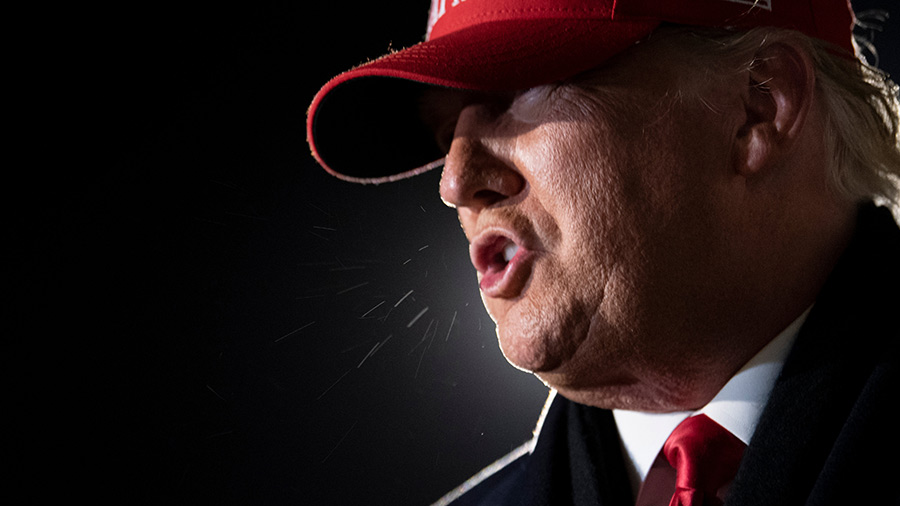
HISTORY: Trump becomes the first U.S. president to be subjected to a political trial twice. House Democrats and a dozen Republicans believe his rhetoric promoted the violence with which fanatical protesters stormed Congress.
The U.S. House of Representatives voted to accuse President Donald Trump of inciting the insurgency, a week before he left the White House.
With the votes of all Democrats and the support of at least a dozen Republicans, co-supporters of the president, the threshold of 217 lawmakers in favor of condemning him was exceeded.
SEE: Vice President Pence Refuses to Invoke 25th Amendment to Remove Trump from Office
This accusation came after Democratic leaders in the Legislature considered that Donald Trump motivated with his rhetoric the violent capture of Capitol by far-right fans on January 6th.
Fans of the president even went so far as to try to stop the legislative certification of Joe Biden’s victory in the presidential election. Hours ago, the president at a rally called on them to “fight with everything” or be willing to “lose the country”.
For the past two months, Trump has maintained that there was election fraud and claims, without any proof, that he won the election. Along the same lines, he has called on his most radical fans to “defend” a triumph that did not exist. This rhetoric resulted in a violent prey that already left at least 6 dead and what many consider a coup attempt as it tried to stop a democratic institution as the election result.
What happens after this vote?
Although Trump has only one more week in power, Democratic leaders in the legislature promoted this process with the intent of ousting the president. A week ago, House Speaker Nancy Pelosi said that while, at the time, she only had 13 days left, “something horrible can happen every day” with Trump in the White House.
ALSO: US military summit. UU. Condemns assault on Capitol: “It was a blow to the Constitution”
Following this conviction for inciting insurrection, Trump’s case will go to the Senate, where two-thirds of that upper house, or 67 senators, will be needed to remove him from office.
This is unlikely to happen before Joe Biden takes office, especially since his top priority is to ratify his cabinet appointments and reform the financial stimulus package to those hit by COVID-19 in order to increase the checks that Americans will receive from $ 600 to $ 2,000.
However, the issue will remain open and if the Senate gets enough votes to ratify the House of Representatives condemnation, Trump would lose his benefits as outgoing president, including an annual pension, expenses for his relocation upon leaving. of the White House, agents of the Secret Service for their personal security and the possibility of being able to run for public office again.